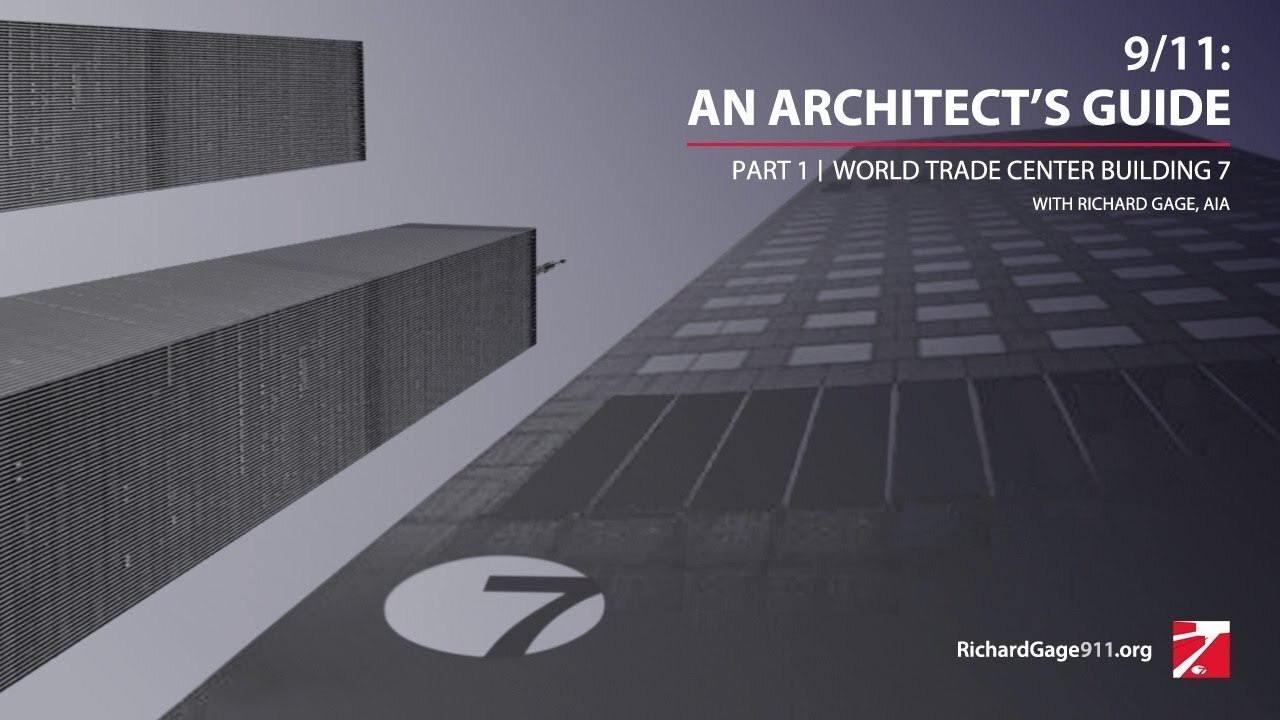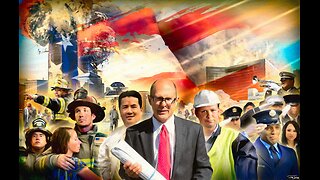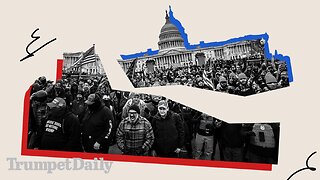Premium Only Content

9/11: An Architect's Guide | Part 1: World Trade Center 7 (2/1/22 webinar - R Gage)
9/11: An Architect’s Guide | Part 1 - World Trade Center 7
Course Number: RG911-AAG-OD1
Live three-part webinar series. Each part is about 1 1/2 hours long
Richard Gage, AIA, Architect is dedicated to conducting research and providing education about the complete destruction of the three World Trade Center skyscrapers, my courses provide the technical knowledge and analytical framework with which to evaluate the most likely cause of those building failures.
Course Description:
In Part 1 of “9/11: An Architect’s Guide,” Richard Gage, AIA, provides an overview of the most important and readily understandable evidence regarding the destruction of World Trade Center Building 7 (WTC 7), a 47-story high-rise that was not struck by an airplane.
The damage WTC 7 suffered from the collapse of the North Tower was found to be inconsequential. It had fires that were similar to those that have occurred previously in high-rise buildings. Yet it fell symmetrically into its own footprint in the manner of a typical controlled demolition.
In 2008, the National Institute of Standards and Technology (NIST) concluded that WTC 7’s destruction was caused by normal office fires that burned “at temperatures hundreds of degrees below those typically considered in design practice for establishing structural fire resistance ratings.”
Is NIST’s explanation for this unprecedented structural failure valid? Decide for yourself after watching this informative one-hour presentation. Using the information presented, you will be able to evaluate which of the two hypotheses — fire-induced failure or controlled demolition — is more consistent with the evidence.
Learning Objectives:
Participants will be able to:
1. Describe the characteristics of building fires and the aspects of high-rise design that contribute to make fire-induced failure in steel-framed high-rise buildings a rare occurrence.
2. Recognize the distinct features associated with fire-induced failure and the distinct features associated with the procedure of controlled demolition.
3. Describe step-by-step the series of structural failures that the National Institute of Standards and Technology found to be the most likely cause of the collapse of World Trade Center Building 7.
4. Analyze the physical evidence and dynamics of Building 7’s collapse according to how consistent they are with the competing hypotheses of fire-induced failure and controlled demolition.
For more information: visit https://RichardGage911.org
Content Managed by ContentSafe.co
-
 2:00:44
2:00:44
RichardGage911
1 month agoRG911 Teaches Class #2 - Twin Towers Destruction - at Finland Metropolia University with Prof. Jordan
520 -
 1:08:03
1:08:03
Donald Trump Jr.
11 hours agoJanuary 6th: More to Uncover, Live with Rep Loudermilk & Darren Beattie | TRIGGERED Ep.205
172K207 -
 1:00:48
1:00:48
The StoneZONE with Roger Stone
4 hours agoJustin Trudeau Throws In The Towel! w/ Canadian Hockey Legend Theo Fluery | The StoneZONE
42.4K13 -
 1:18:37
1:18:37
We Like Shooting
14 hours ago $0.79 earnedDouble Tap 391(Gun Podcast)
23.3K -
 2:32:43
2:32:43
FreshandFit
14 hours agoAndrew Wilson VS Gary The Numbers Guy Astrology & Numerology Debate!
104K59 -
 9:22:40
9:22:40
Dr Disrespect
13 hours ago🔴LIVE - DR DISRESPECT - TRIPLE THREAT CHALLENGE - RIVALS, PUBG, WARZONE
213K41 -
 1:15:03
1:15:03
Dad Dojo Podcast
11 hours ago $1.30 earnedEP16: Parenting: Then vs Now
32.6K -
 53:58
53:58
Sarah Westall
5 hours agoBlack Pilled vs Learning Reality and Maintaining Perspective, AI Reality w/ Johnny Vedmore
47.5K4 -
 55:01
55:01
LFA TV
1 day agoJan. 6, 2021, vs. Jan. 6, 2025 | TRUMPET DAILY 1.6.25 7pm
35.3K2 -
 1:19:27
1:19:27
The Big Mig™
1 day agoLimitless Health with Calley Means
40.7K8